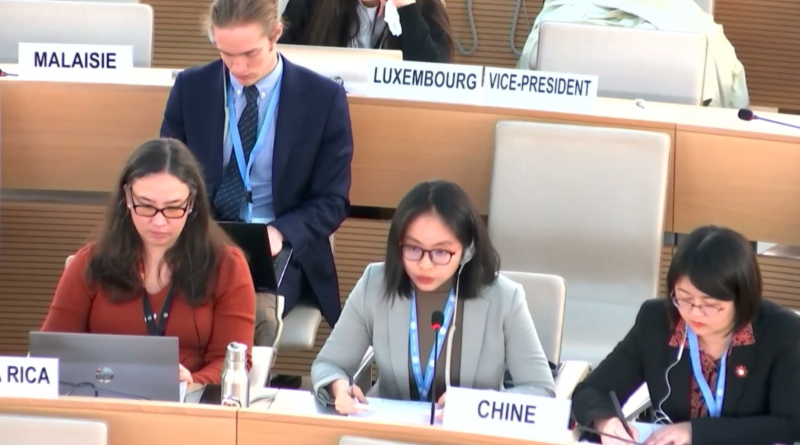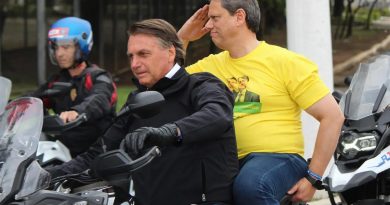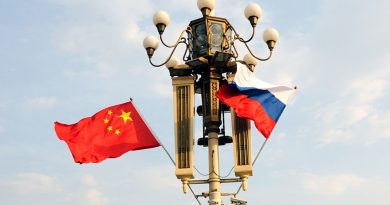These countries slammed UNHRC for its attack on Nicaragua
Several countries have rejected the politicized use of the UN Human Rights Council and the weaponization of human rights against Nicaragua, following the release of a hostile UN expert report.
A speakers list which included DPRK, Venezuela, Belarus, Cuba, Iran, Russia, Eritrea, Syria, and China voiced opposition to the methods of the expert group and the use of unverified findings to call for additional unilateral coercive measures.
The 300-page report (Spanish version) is based on false accounts and allegations and is demonstrably and egregiously selective in its presentation of evidence since the group systematically excluded a large quantity of local sources, including major Nicaraguan news channels which published highly relevant material and reports on specific incidents during the period in question (2018).
International condemnation of the UN expert report during Tuesday’s Human Rights Council meeting can be watched here and a rough transcript can be read below.
DPRK
The DPRK delegation has looked at the report presented before us as a dangerous trend of interference in the internal affairs of a foreign state based on unreliable and credible sources in the case of the U.N. human rights mechanism. It is obviously selective and politically motivated approach and it proves itself that it is another attempt to manipulate the Human Rights Council in its own political interest.
The main goal of this process is aimed at the demonizing a legitimate sovereign state. It is absolutely unacceptable. We continue to oppose and reject any practice in attempt of selectively targeting of a sovereign state and political interference in the internal affairs under the pretext of human rights. We note with appreciation the measures taken by the government of Nicaragua to strengthen its judicial and electrical system and its laws as it centers on the dignity and protection of human rights of Nicaraguans and safeguards peace.
We urge HRC or HRCR to encourage genuine dialog and cooperation with the state, carry out work based on its mandate in an objective and impartial manner, and to stand against politicization, selectivity and double standards over human rights. I thank you.
Venezuela
Just last Friday, the Council held a forced dialog against Nicaragua on the basis of an interventionist resolution that has nothing to do with true protection, promotion of human rights.
Now it is time to look at a report from the new mechanism to bully Nicaragua, fabricated by that resolution. Just to give an example, it questions and suggest changes of its national electoral system. This is a gross violation of sovereignty and of the respect due to noninterference in the internal effects affairs of states. The backdrop to this new offensive was the indisputable results of its municipal elections held in full peace and harmony and a civic celebration with full participation by the people.
Keeping Nicaragua on the agenda of this council is part of a plan orchestrated in order to try to justify the imposition of the illegal, inhuman and unilateral coercive measures against Nicaragua by which are true crimes against humanity. The Government of Venezuela reaffirms its full support to the brotherly people of Nicaragua and its government and will continue firmly to oppose politicization, selectivity and double standards in the work of this Council.
Belarus
The report presented to the Council today and the activity of the mechanism established without the agreement or the interests of Nicaragua are not an instrument for dialog and cooperation and human rights. They merely create additional tension and confrontation, as the authors of the report were not able to overcome their bias and are not attempting to present an objective picture of the situation.
Moreover, they appear to deliberately discord the processes in the country in order to reach unfounded recommendations and conclusions for further exacerbating the situation. This approach does not facilitate the seeking of new opportunities to restore trust and cooperation and leave the situation in a stalemate. The Human Rights Council should stop misusing country topics, the only purpose of which is to provide to exert further pressure on states which select their own path for development.
Cuba
Cuba is opposed and will continue to oppose the resolution that gave rise to this dialog, which shows politicization, selectivity and double standards that prevail in this Council. We must understand that only through dialog, mutual respect and constructive cooperation can we contribute to the promotion and protection of human rights in all countries. President, we reiterate our unflagging support to the Sandinista government and the people of Nicaragua who continue to work tirelessly for sustainable development, peace, justice, well-being and social emancipation.
As we said last week, truly acting for human rights means demanding the immediate cancellation of the unilateral coercive measures against Nicaragua and other countries of the South, whose effects are an obstacle to the full enjoyment of human rights of the peoples of the affected countries. We reiterate our strong opposition to politicization, imposition of punitive measures and unlawful use of the bodies and mechanisms of the United Nations to manipulate the internal situation in Nicaragua, destabilize this democratically elected government, and damage its international image.
Iran
The Islamic Republic of Iran vehemently opposes the confrontational debate of the Council on developing countries, including on Nicaragua. The offered approach towards Nicaragua, based on the unverified resources, signifies the negligence of relentless efforts undertaken by the government of Nicaragua in overcoming obstacles and challenges, mainly emanating from imposition of unilateral coercive measures that hurdle the enjoyment of people of Nicaragua from their fundamental human rights, in particular economic, cultural and social rights.
The effort and pattern of attacking a sovereign nation in the pretext of human rights irreparably damaged the function and idea of the Council. We welcome the efforts undertaken by the government of Nicaragua in improving human rights of their people, especially for their achievements in improving the right to health, education and work. The will and the steps taken by the government of Nicaragua in fighting extreme poverty and eradication of illiteracy are something that should be recognized and supported.
Russia
The Russian Federation has consistently advocated for an objective and non-politicized work within the Human Rights Council. We do not support maintaining the group mandate of the group of experts on Nicaragua. Their report is replete with accusatory rhetoric, and the alleged authenticity of evidence is based on vague phrases such as “There are reasonable grounds to believe..” the authors disregard the adverse effect of unlawful sanctions introduced by the U.S., the UK and their satellites against Nicaragua.
Moreover, we are astonished to see the recommendations of the expert to extend sanctions to organizations and individuals. Such declarations fully discredit this mechanism, which is already calling for the use of sanctions as a tool to coerce sovereign states and impose borrowed values on them. Critical attacks against Managua are to a large extent due to Washington, London and aims, as well as those of their satellites, to reshape this country in their own interest as it conducts its independent policy after the failed attempted coup in 2018.
Organized and sponsored from abroad, the collective West is continuing its anti-Nicaragua campaign and the Human Rights Council demonstratively is disregarding the achievements of the lawful government of Nicaragua. The poverty level has fallen by 24 degrees (percent), extreme poverty by 14% and we call upon the (..) to refrain from such politicized attempts.
Eritrea
Eritrea respects the right of developing countries to independently determine their own future and destiny.
We demand that the Council stops the recycling of reports of disparate societies who have decided to take their future into their own hands. We have always advocated that all parties conduct constructive dialog on human rights issues on the basis of equality and mutual respect and with the ultimate objective of safeguarding human rights and fundamental freedoms. Contrary to that, we are witnessing these days, the increasing tendency to establish counterproductive special mandates leading to confrontation and division among member states on the vision on how best could the Council deliver its lofty objectives.
The fact that this Council considers the same issue in Nicaragua, in the in this very same session by itself testifies to the lack of sincerity and objectivity to serving human rights. And we call on the Council to cooperate fully and to understand each other.
Syria
We reiterate our rejection of mandates against countries on political basis and unlawful interference in the internal affairs of a state.. (inaudible, simultaneous interpretation feeds got mixed up)
China
China respects Nicaragua’s sovereignty, independence and territorial integrity, respects its people’s right to independently determine their own future and destiny, and restlessly opposes external forces interfering in its internal affairs under the pretext of democracy and human rights. The UCM’s imposed by certain countries on Nicaragua, a manifestation of power, politics and coercive diplomacy, seriously hindering economic and social development of the country, and gravely violating the human rights of its people.
Such measures should thus be lifted immediately. The Council should observe the purposes and principles of the UN Charter, adhere to the principles of objectivity and non-selectivity, actively conduct constructive dialog and provide no stage for hegemonic acts, confrontation and pressuring. The International Committee should, with the consent of the government and its people, do more things that contribute to economic development and improvement of people’s livelihood in a bid to truly advance human rights course in Nicaragua.
By Kawsachun News



